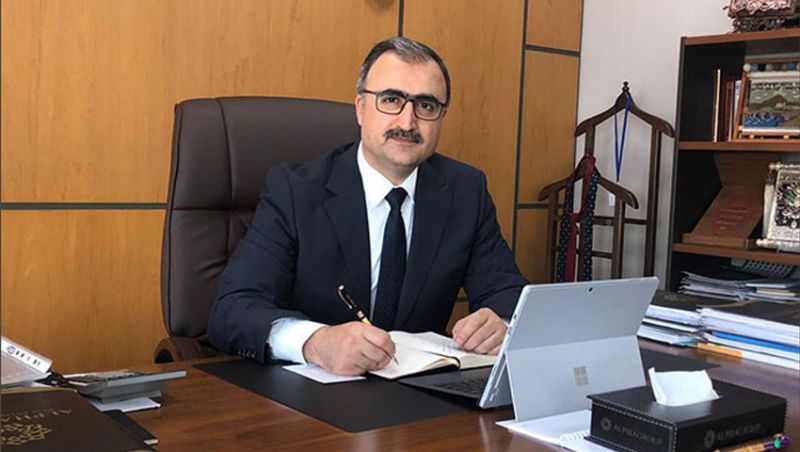Stating that the relations between the countries and foreign trade have experienced significant changes while fighting the coronavirus worldwide, Alpha Group’s Chairman Muhammet Şefik Yön pointed out the production loss in the global economy and emphasized that the decrease in demand, as well as the problems in the supply chain, have been effective in this loss. Yön said, “Industrialization period will start again in developed countries. In global supply chains, shortening and simplification will be targeted.”
Muhammet Şefik Yön, Chairman of Alpha Group, operating in the field of international trade and construction, evaluated the effects of coronavirus on economic relations between countries and talked about potential opportunities for Turkey.
“USA-CHINA TRADE NEGOTIATIONS MAY HAVE ENDED BEFORE THEY BEGAN”
Stating that the developments in the political, military and economic relations of the USA with China are both to change the direction of world trade, as well as having the potential to offer very significant opportunities for Turkey, Yön said, “While the coronavirus is an issue of tension on its own between the US and China, a new issue of debate emerged in relation to China’s enactment of laws that would interfere with Hong Kong’s status. The US administration, who is determined to make China pay off due to the coronavirus, is also considering abolishing the privileges provided to Hong Kong with this new crisis. Besides, the second round of trade negotiations between China and the USA may have ended before they began. Countries that will aspire to some of the capacity of China, the production centre of the world, are gradually starting to take positions.”
“NEW INDUSTRIAL ZONES WILL BE ESTABLISHED”
Stating that the industrialization period will start again in developed countries, Yön said, “Coronavirus has led to important inquiries in the supply chains. The risks of systems that are multi-layered, complex, and highly dependent on foreign trade have become more visible. This process may be the beginning of a period in which supply chains are shortened and simplified. Now, we think that the low risks of supply chains close to the production centres, apart from their price competition, may also be the reason for preference. We anticipate that new industrial zones and installations will increase in the nearby geography of Europe. Our company Yön Teknik, with its experience in the field of industrial facilities, has intensified its efforts in this field.”
“TURKEY UNDERWENT A SUCCESSFUL EPIDEMIC PROCESS”
Stating that the change has brought opportunities along with the risks, Muhammet Şefik Yön said, “Turkey gave a good account of itself, and now it needs to ensure rapid adaptation to the upcoming period. Turkey earned two important achievements in the process of coronavirus. The first one is, of course, in the field of health. The “fight against coronavirus” process, which is managed with a proactive strategy, continues in a way that the world appreciates. The effort spent for the health of our people seems to have paid off compared to other countries. Secondly, there is Turkey’s power to fulfil its responsibilities as a commercial partner. During the outbreak, the supply chain continued to travel to Europe from Turkey in a remarkably successful manner. Our SMEs, who are accustomed to crisis management and have strong entrepreneurship skills, have presented their experience in this process. Thinking about planning the future, Turkey is a country with manpower and production capacity to meet the needs of entire Europe provided that necessary investments are made. Turkey has made great moves in the industrialization process during the 2000s. We have a great production power with 335 organized industrial zones in 80 provinces. Within the framework of our new economic policies, we have the idea of compensating imported inputs with domestic production. In this way, we will shorten and simplify supply chains both for ourselves and for the countries around us. We do not have a second country in our region, which can develop such a production infrastructure without sacrificing quality and increasing costs, thanks to our qualified workforce and highly efficient work structure.”


